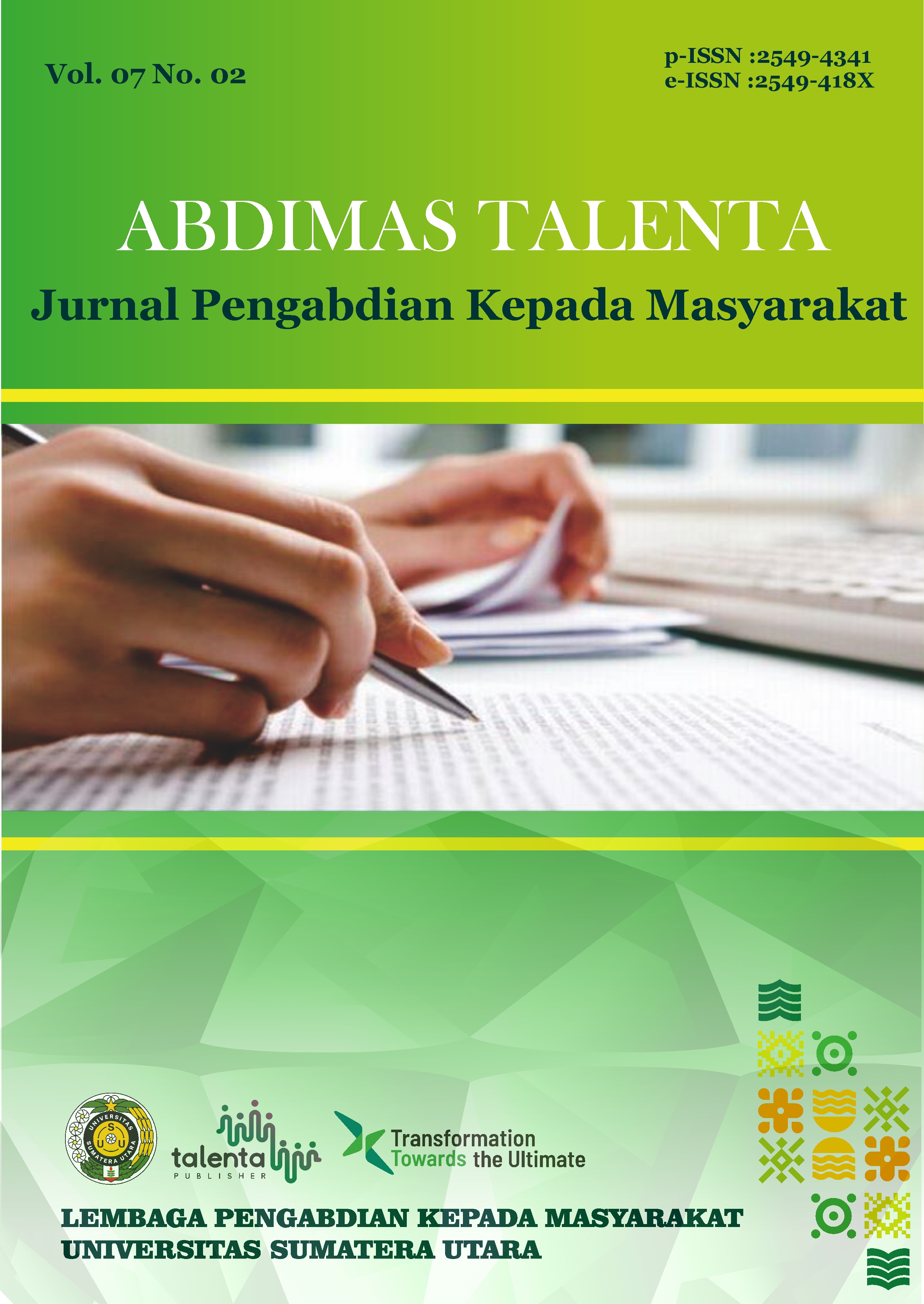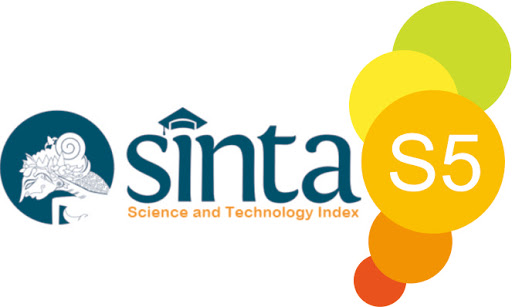Improving the Quality of Sanitation and Environmental Cleanliness at SD Swasta Pembangunan, Petumbak District, Deli Serdang Regency
DOI:
https://doi.org/10.32734/abdimastalenta.v7i2.7310Keywords:
Clean, Environment, Sanitation, Healthy and SchoolAbstract
School sanitation is one of the development priorities included in the Sustainable Development Goals (SDGs), namely goal 4a is to build and improve educational facilities that are child-friendly, persons with disabilities, gender and provide a safe, non-violent, inclusive, and effective learning environment for all. The Development Private Elementary School is a private elementary school located in Patumbak District. This school is prioritized for the economically weak community whose parents work as laundry workers, construction workers, motorcycle rickshaw drivers and others. The foundation collects a tuition fee of Rp. 10,000/month, which is certainly not sufficient for school operational costs so that the development of school facilities and infrastructure is not up to standard. Environmental sanitation conditions in this school such as the availability of clean water is lacking, bathrooms are damaged, waste handling is not optimal, there is no place for washing hands. Based on these problems, the solution given is to improve proper sanitation conditions in the school by making boreholes with a depth of ± 10 m equipped with a pump to meet the water needs in the bathroom, renovating the bathroom, providing segregated trash cans and portable hand washing stations. In addition to providing in kind, this community service activity also provides socialization related to proper sanitation and clean and healthy living behavior to students.
Downloads
Downloads
Published
Issue
Section
License
Copyright (c) 2022 ABDIMAS TALENTA: Jurnal Pengabdian Kepada Masyarakat

This work is licensed under a Creative Commons Attribution-ShareAlike 4.0 International License.
The Authors submitting a manuscript do so on the understanding that if accepted for publication, copyright of the article shall be assigned to Jurnal Abdimas TALENTA as well as TALENTA Publisher Universitas Sumatera Utara as the publisher of the journal.
Copyright encompasses exclusive rights to reproduce and deliver the article in all forms and media. The reproduction of any part of this journal, its storage in databases and its transmission by any form or media, will be allowed only with written permission from Jurnal Abdimas TALENTA.
The Copyright Transfer Form can be downloaded here.
The copyright form should be signed originally and sent to the Editorial Office in the form of original mail or scanned document.












